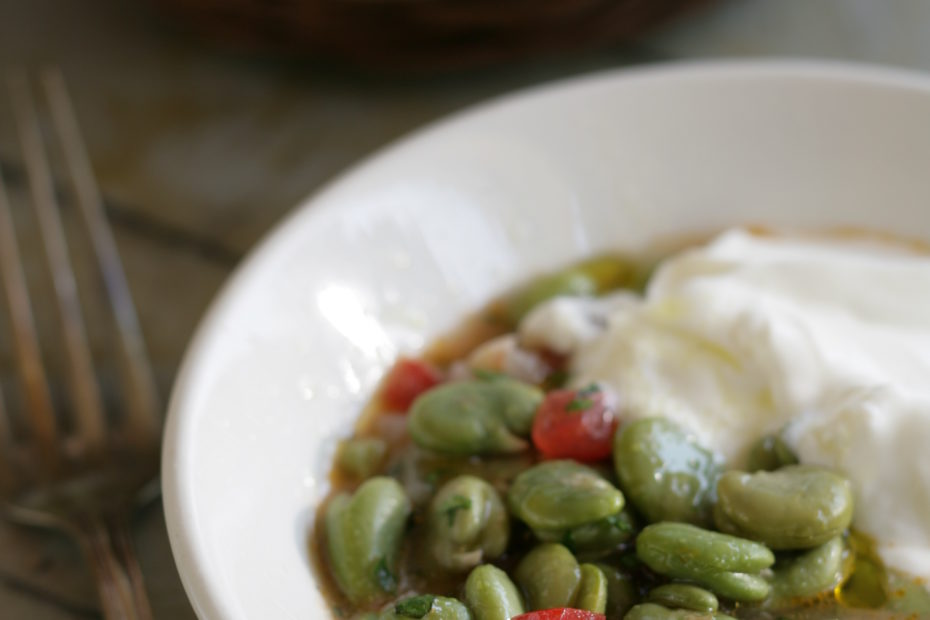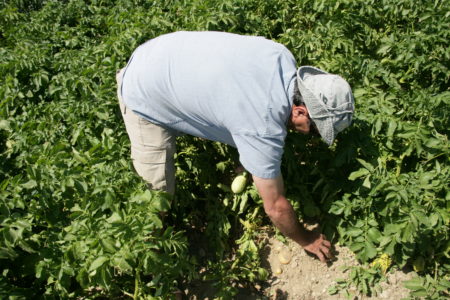
You may not know that as much as 25% of the carbon emissions produced today are caused by agriculture and factory farming—about the same amount that is produced by electrical power production.[1] Consequently, we can do a lot to protect the earth by modifying our diets, and an international commission, EAT-Lancet, actually released guidelines in 2019 for a healthy and sustainable global diet. The good news is that their recommendations sound just like the Greek-Mediterranean Diet:
“Globally, the planetary health diet favors increasing the consumption of a variety of fruits, vegetables, nuts, and legumes alongside small portions of meat and dairy.” [2]
Here are a few specific steps we can all take to implement these guidelines in our own diets:
Emphasize Plants (Preferably Locally Grown and Organic)
It goes without saying that we all benefit from eating more fruits and vegetables, and in the Mediterranean Diet, these foods take center stage. But we can also go a step further by selecting locally grown produce or even growing our own! Besides the fact that factory farmed fruits and vegetables are more burdensome to our planet because of transit and conventional agricultural practices (like pesticide pollution and monoculture), research shows that they are actually less nutritious, too. Modern agricultural techniques have stripped nutrients from the soil for decades, which further depletes them from the foods we eat. [3] Even better, try growing your own—it doesn’t get more local than that! Home gardens in Greece are ubiquitous. Even in tiny Athens apartments, you’ll find potted tomatoes and herbs covering the balconies. If you can’t manage that, visit a local farmer’s market and select organic when you can. Your food will taste better and be better for you and the planet.
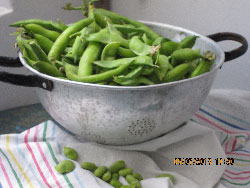
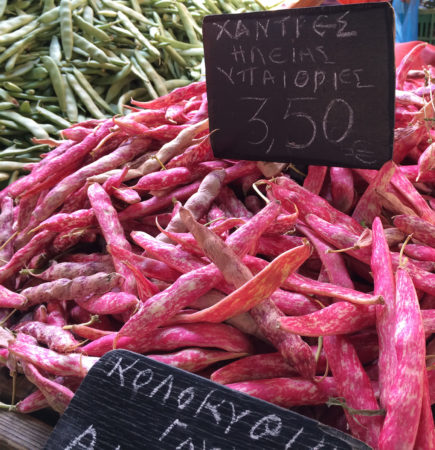
Meat is eaten sparingly in the Mediterranean Diet, because historically, it was expensive and hard to come by. But as it turns out, that’s the healthiest way of eating for us and the earth. Beef and dairy production is responsible for nearly 34% of diet-related carbon emissions, [4] and heavy beef consumption is also linked to chronic health conditions like cancer. [5] In lieu of red meat, try incorporating a main course of vegetable protein like beans or peas. In Greece, these foods are frequently enjoyed as a main course with a side of crusty bread, some olives or cheese, and a healthy drizzle of olive oil—you won’t even miss the meat.
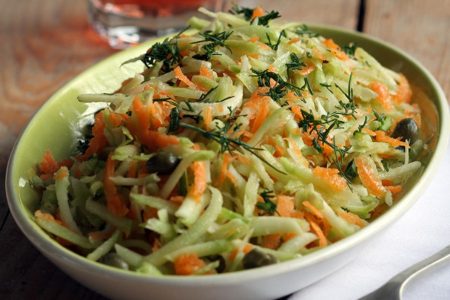
Broccoli Stalk Slaw with Cabbage and Carrots.
Photo: Vassilis Stenos
Waste Not
Letting nothing go to waste has been an age-long practice in Greece because food was precious. This approach led to the creation of foods like trachanas, a pasta-like grain used to preserve sour milk, and kokkoretsi, an Easter sausage of lamb or goat offal, after the animal was roasted on the spit. Today, avoiding food waste is even more important as feeding the planet takes such a toll on our climate and limited resources. Many of my recipes feature such “nose-to-tail” cooking, like my Broccoli Stalk Slaw and Stuffed Potato Skins. You would be surprised how many amazing dishes you can make with a little creativity and determination!
It’s as simple and easy as that! Since these recommendations are all things we should all be doing, anyway, it’s nice to know we can help our planet by helping our health at the same time. Happy Earth Day!
[1] https://www.nbcnews.com/better/lifestyle/how-our-diets-impact-climate-change-what-we-can-do-ncna1041301
[2] https://eatforum.org/lancet-commission/eatinghealthyandsustainable/
[3] https://www.scientificamerican.com/article/soil-depletion-and-nutrition-loss/
[4] https://www.nrdc.org/resources/eating-less-beef-goes-long-way-toward-cutting-carbon
